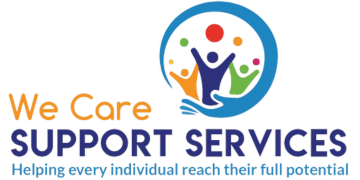Educational testing plays a pivotal role in assessing students’ academic abilities, guiding instructional strategies, and identifying areas for improvement. In a dynamic educational landscape like Orlando, where diversity thrives and educational standards evolve, understanding the nuances of educational testing is paramount. This comprehensive guide aims to navigate the intricate terrain of educational testing in Orlando, exploring its significance, methods, challenges, and the resources available to students, parents, educators, and administrators.
The Importance of Educational Testing: Educational testing in Orlando serves multiple purposes, ranging from gauging students’ academic proficiency to informing instructional decisions and evaluating educational programs’ effectiveness. Through standardized assessments, educators gain valuable insights into students’ strengths and weaknesses, enabling tailored interventions to enhance learning outcomes. Moreover, educational testing plays a crucial role in ensuring accountability within the education system, fostering continuous improvement and equitable access to quality education for all students.
Types of Educational Testing: In Orlando, educational testing encompasses various types, each serving distinct purposes and audiences. Standardized tests, such as the Florida Standards Assessments (FSA) and the SAT, are administered statewide or nationally to measure students’ proficiency in core subjects like mathematics, reading, and writing. These assessments provide benchmark data for evaluating academic performance and informing curriculum development.
In addition to standardized tests, Orlando schools may utilize diagnostic assessments to identify individual students’ academic needs and tailor instruction accordingly. Diagnostic assessments delve deeper into students’ understanding of specific concepts, providing valuable feedback to educators for targeted interventions. Other forms of educational testing include formative assessments, which monitor students’ progress throughout the learning process, and summative assessments, which evaluate overall learning outcomes at the culmination of a unit or course.
Challenges in Educational Testing: While educational testing serves as a valuable tool for assessing learning, it is not without challenges, particularly in a diverse and dynamic city like Orlando. One significant challenge is ensuring the validity and fairness of assessments for all students, including those from culturally and linguistically diverse backgrounds. Addressing cultural biases in test content and providing accommodations for English language learners are essential steps in promoting equity in educational testing.
Moreover, the pressure to perform well on standardized tests can lead to issues such as test anxiety and narrowing of the curriculum, where instructional focus shifts primarily to tested subjects at the expense of other important areas. Recognizing the limitations of standardized testing and employing multiple measures of assessment can mitigate these challenges, providing a more comprehensive understanding of students’ abilities and growth.
Resources for Educational Testing in Orlando: Fortunately, Orlando offers a wealth of resources to support educational testing endeavors for students, parents, educators, and administrators alike. Local school districts provide guidance on testing policies, schedules, and preparation strategies through their websites and outreach efforts. Additionally, community organizations and educational institutions often offer workshops, tutoring services, and informational sessions to help students prepare for standardized tests and navigate the testing process.
For students with disabilities or special needs, Orlando’s educational system offers accommodations and support services to ensure equitable access to testing opportunities. These accommodations may include extended time, alternate formats, or assistive technologies, depending on individual needs. By advocating for inclusive testing practices and leveraging available resources, educators and parents can empower all students to demonstrate their abilities effectively.
Conclusion: Educational testing is an integral component of the educational landscape in Orlando, serving as a barometer of student achievement, a catalyst for instructional improvement, and a driver of educational equity. By understanding the various types of educational testing, addressing challenges, and utilizing available resources, stakeholders can navigate the testing landscape effectively, fostering positive outcomes for students across the diverse communities of Orlando. As the city continues to evolve, so too will the strategies and approaches to educational testing, ensuring that every student has the opportunity to succeed academically and thrive in the vibrant tapestry of Orlando’s educational landscape.




